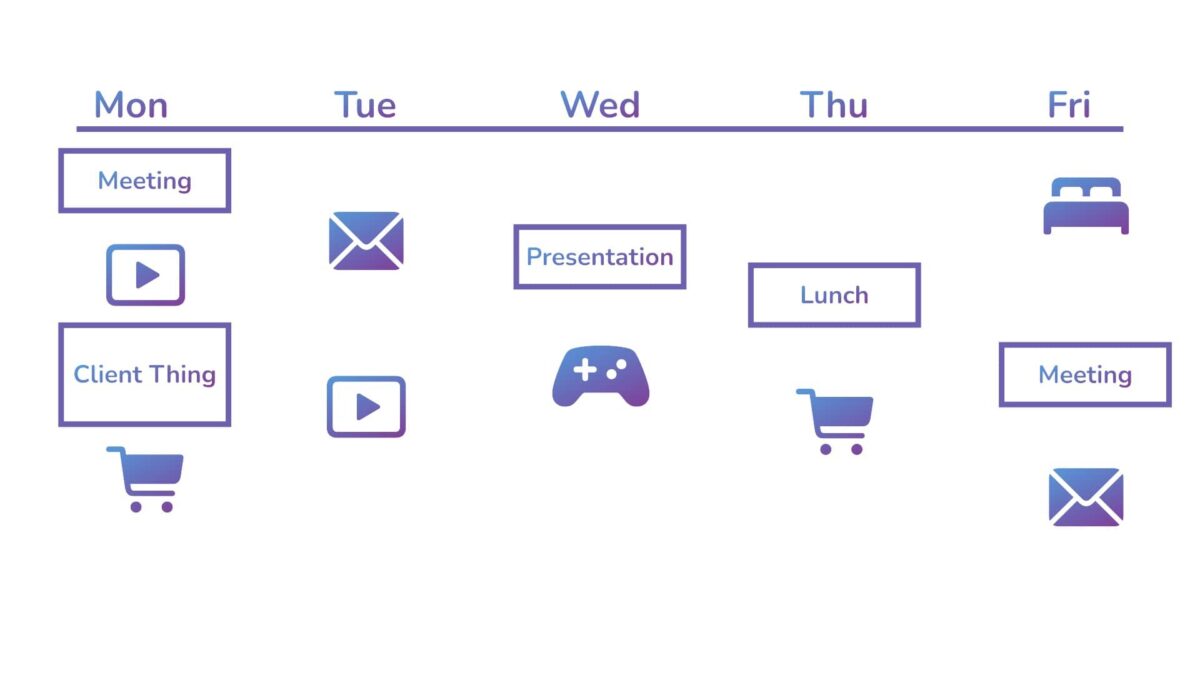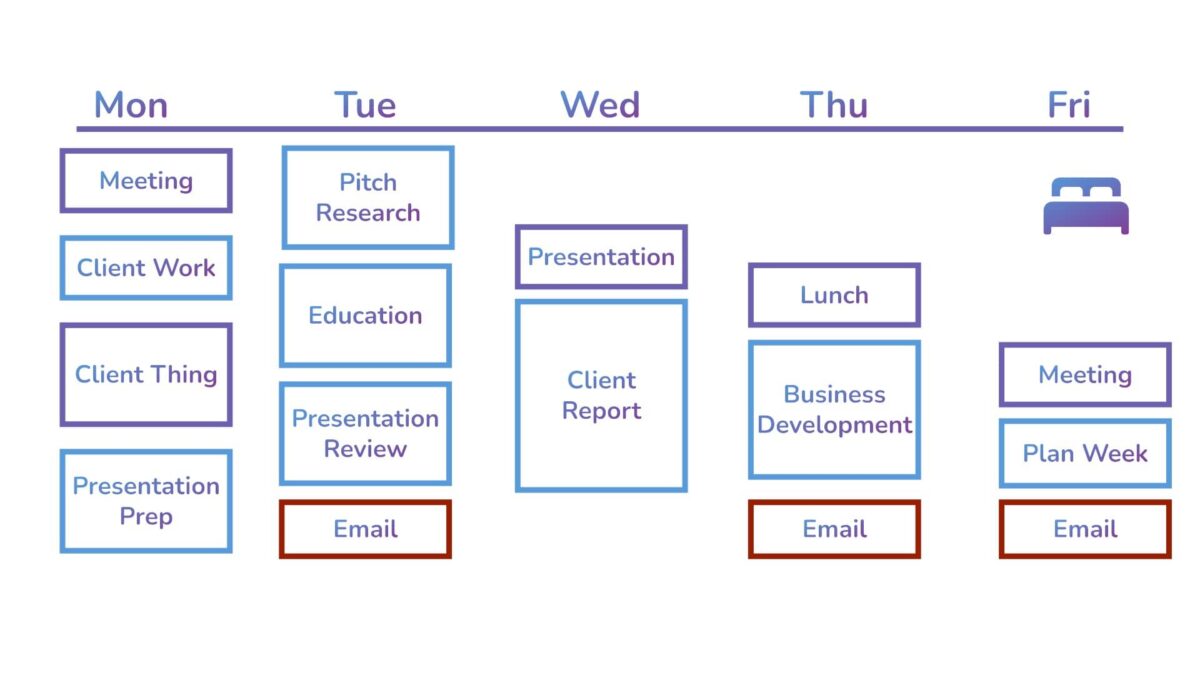David Sparks—aka MacSparky—is a renowned productivity expert and a long-time fan of TextExpander. He was kind enough to give a presentation at our first Virtual Summit to explain his time blocking method.
Do you feel as though you don’t have enough time in the day? That you can never find time to work on what really matters?
If that’s you, you should take the time to watch MacSparky’s presentation on his time blocking method.
But if you haven’t blocked off time to watch the video, here’s a quick summary of MacSparky’s key points.
Why busy is bad and why you don’t have time for what’s important
What’s your relationship with the word busy? Is it something you dread or a word that fills you with pride? David explains that being busy isn’t a good thing.
“Busy means you don’t have time to work on what really matters to you,” David Sparks says.
Often, when we are busy, it’s because we’re drowning in random tasks that feel like work but in fact keep us from taking on the projects we really care about, like spending time with kids or writing a novel. If you have unfulfilled dreams, there are two key reasons why:
- You are managing your time poorly.
- You are doing too much.
And often, it’s both.
The problem: tasks vs. time
No matter who you are, you only have so much time, and no one—not even Bill Gates—can buy more.
However, there are an infinite number of possible tasks. Do you answer emails, do you play a video game, do you climb Mt. Everest, do you fly to Mexico?
Thus the problem: tasks are infinite but time is finite. Therefore the solution is to pare down your tasks to what you want to focus on and then carefully manage your time with a time blocking method to get the important things done.
If you do not have a schedule, one will be provided for you
As MacSparky explains, we all have a schedule whether we realize it or not, and what most of us have is an unintentional schedule. We intentionally book things like meetings but otherwise leave our calendars open.
Maybe we have a few minutes between meetings and browse YouTube or go shopping on Amazon. Maybe you knock off to go play a video game after that big presentation. Then you get to the end of the week feeling powerless because you didn’t accomplish everything you wanted to do.

David Sparks explains that this is inherent to how our brains work from spending so long roaming the plains and avoiding sabretooth tigers.
“We get lost in the weeds all the time,” MacSparky says.
As a result:
- We’re bad at managing time.
- We often find ourselves doing too much.
The way out is that we always need to have an answer for the question, “What’s next?” And to do that, we have to be deliberate with our time. Because without a plan, we find ourselves going down pointless rabbit holes.
The Time Blocking Method
“It’s time to give your time a job,” MacSparky says.
Just as we should all ideally be budgeting our money so every dollar has a purpose, we should do the same for our time. David Sparks explains that this time blocking method lets us use our managerial brain to design our week, and then we can use our creator brain to focus on our work without the need to switch hats.
The time blocking method works like this:
- Set aside time during the week to block out your schedule. MacSparky blocks 20 minutes either on Friday or Sunday afternoon for this, though he says you may need more time in the beginning.
- Look at your calendar for the next week and make appointments for yourself for the important things to get done. David uses Fantastical for this, but you could use any calendaring app or even a paper notebook. The tasks you block time for don’t necessarily have to be work—it could be spending time with your kids or taking a hike.
- It’s important not to get too granular. Blocking out bathroom breaks is going too far. Keep your blocks to hour increments to keep things simple.
- Humans are terrible at estimating time, so MacSparky recommends doubling the estimate for how long you’ll think it’ll take to get something done, and then you can fine-tune it later.
- Pick a couple of times throughout the week to review how your schedule is going and adjust accordingly.
- If you get your task done before the block is over, reward yourself!
“Time boxing is caging the lions. When you start time blocking you’ll discover there are enemies, there are lions out there trying to eat you,” David Sparks says. Those lions are things like email and unnecessary meetings.

Learn the Power of “No”
The trick to fighting off the lions and maintaining this time blocking method is to learn to say “no” to the things that will distract you from what’s important.
This goes back to the problem of doing too much. Every “yes” is a commitment that cuts into your finite time. So before you commit to anything, first check your time blocks and ask what you’re willing to give up to take on that “yes.” If the trade isn’t worth it, say, “no.”
Macsparky says that you shouldn’t apologize or explain yourself for saying no. Just politely but firmly say no and keep yourself dedicated to your unicorns. We’ve created a TextExpander Snippet Group to help you easily say “no.” Once it’s installed, just type no.random to expand into one of many polite and funny ways to decline your lions.
Discover Your Unicorns
What does Macsparky mean by a “unicorn?” Unicorns are the things you really want to do, but how do you figure out what those are?
David Sparks explains that isn’t easy, but he offers some broad suggestions on how to identify your unicorns. He recommends starting with a quarterly view of your life to plot out broad initiatives and then break it down into months, weeks, and finally days.
Figuring out your unicorns is really just a matter of deciding what you want out of life and then prioritizing your time to achieve those goals.
Dealing with the Unexpected
“No plan survives contact with the enemy” — Helmuth von Moltke
Macsparky says one of the objections he often hears is that the time blocking method doesn’t leave room for the unexpected like emergencies or your spouse or children wanting your time.
While it’s important to keep those meetings with yourself, you have to circle back to your priorities and be willing to rearrange your schedule when needed. If you have an hour-long block coming up to work on your novel but your kid needs attention, just move the block to another time.
However, if you find yourself constantly moving a block around, ask yourself why. Maybe that block isn’t important and you should delete it. Or maybe you simply aren’t giving that task the focus it deserves. Only you can answer that question.
But in general, you should treat your blocks as sacred unless something else pops up. If that means ignoring emails or skipping meetings, so be it. David Sparks blocks off an hour per day for email but admits that he isn’t the world’s best email guy.
“Because I decided to not be the world’s best email guy, I have time to make things and ship them to the world,” David says. He first implemented this time blocking method when he struggled to create his successful line of MacSparky Field Guides.

The successful warrior is the average person with laser-like focus
You don’t have to be a superhero to accomplish extraordinary things. Once you gain control of your limited time and use this time blocking method to hone in on what truly matters, you can start achieving amazing things with the time you have.

